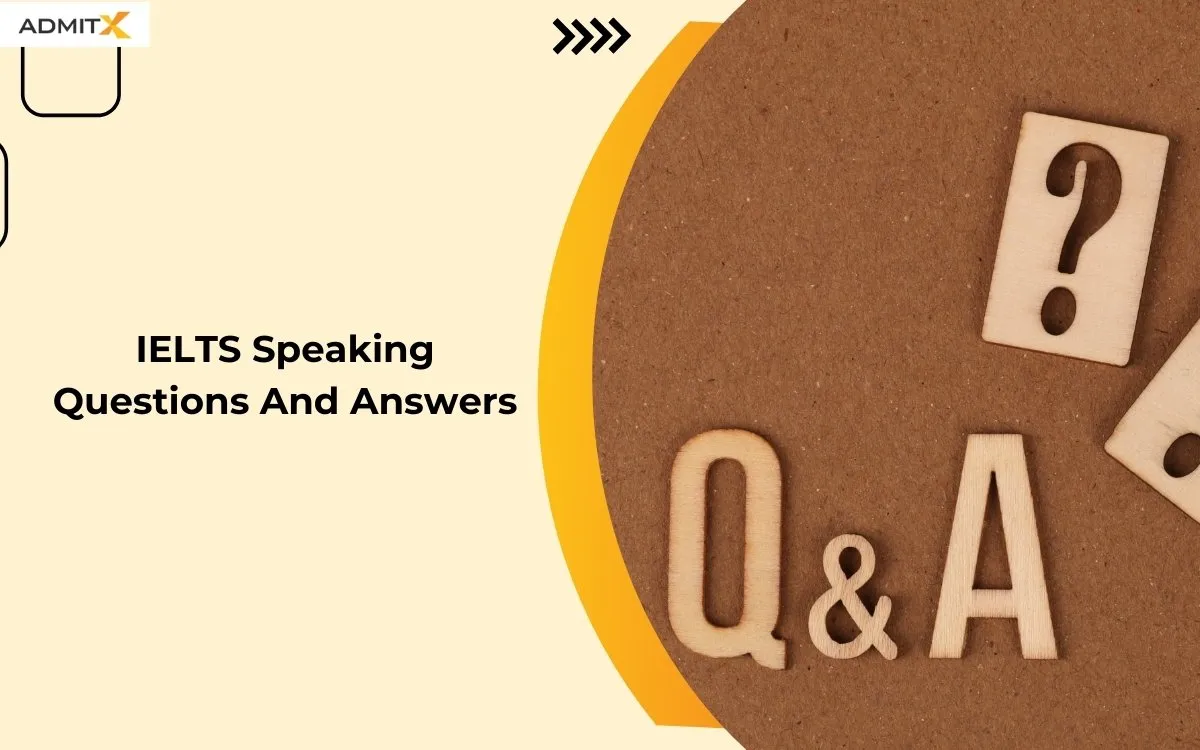
IELTS Writing Task 1: How to Ace the Academic and General Tests?
The IELTS Writing test comprises two tasks: Task 1, where you describe a visual prompt like a graph or chart, and Task 2, where you write an essay on a given topic. Your writing is assessed based on Task Achievement, Coherence and Cohesion, Lexical Resource, and Grammatical Range and Accuracy.
In this blog, you will get all the details you need to know before taking IELTS writing tasks 1 and 2.
IELTS Writing Section
| Criteria | Description |
|---|---|
| Content | Tasks to communicate the idea/opinion or logic in written form. |
| Number of questions | 2 tasks |
| Time Duration | 60 minutes |
Type Of Questions
The writing section of the IELTS syllabus consists of questions based on the following topics:
Task 1: Discussion on Chart, diagram, picture, object’s photo, etc. The minimum word limit for task 1 is 150 words.
Task 2: Discussion on relevant issues related to general awareness. The minimum word limit for task 2 is 250 words.
IELTS Academic Writing Task 1
You will be given a visual representation of data (like a graph, chart, or table). Your task is to write a 150-word description of the main features and trends in this data.
Key points to remember:
- Factual description: Stick to the facts presented in the visual.
- Formal language: Use formal and academic language.
- Comparison: Highlight comparisons where relevant.
- Time limit: You have 20 minutes to complete this task.
Avoid:
- Interpretation: Don’t speculate or provide explanations for the data.
- Personal opinion: Keep your writing objective and factual.
IELTS Academic Writing Task 2
You will be given a topic or opinion. Your task is to write a formal essay of at least 250 words, expressing your viewpoint on the given subject.
Key points to remember:
- Formal language: Use academic and formal language.
- Clear structure: Organise your essay into clear paragraphs.
- Critical thinking: Present your arguments logically and critically.
- Time limit: Aim to complete the essay in under 40 minutes.
Avoid:
- Informal language: Stay away from casual or conversational language.
- Personal opinions: Back up your claims with evidence or examples.
IELTS General Writing Task 1
You will be asked to write a letter, either formal or informal, depending on the given situation. This letter could be a request for information, an explanation, or a complaint.
Key points to remember:
- Word count: Write at least 150 words.
- Purpose: Clearly state the purpose of your letter.
- Formal or informal: Use appropriate language and tone.
- Time limit: Aim to complete the letter in 20 minutes.
Avoid:
- Off-topic content: Stick to the given topic and instructions.
- Inaccurate information: Ensure your information is correct and relevant.
IELTS General Writing Task 2
You will be given a topic or opinion. Your task is to write an essay of at least 250 words, expressing your viewpoint on the given subject.
Key points to remember:
- Personal opinion: Express your own opinion on the topic.
- Supporting arguments: Provide reasons and examples to support your viewpoint.
- Clear structure: Organise your essay into clear paragraphs.
- Time limit: Aim to complete the essay in under 40 minutes.
Avoid:
- One-sided argument: Consider both sides of the issue.
- Weak arguments: Use strong evidence and logical reasoning.
IELTS Bootcamp By AdmitX
AdmitX’s IELTS Bootcamp offers a focused and efficient path to your target score. This 14-hour program packs a powerful punch with:
- 67 concise video lessons: Expert trainers break down each module (Listening, Reading, Writing, and Speaking) into bite-sized, easy-to-digest chunks.
- 17 targeted assignments & 7 quizzes: Test your understanding and identify areas for improvement with a variety of exercises.
- 13 interactive activities: Engage with the material and reinforce key concepts through hands-on learning.
- 5 full-length mock tests: Simulate the real exam experience and receive detailed feedback to pinpoint your strengths and weaknesses.
- Community support: Connect with fellow IELTS aspirants, share your progress, and get your questions answered by experienced mentors.
Beyond the curriculum, you’ll gain:
- Proven test-taking strategies: Master time management, tackle challenging questions, and maximise your score.
- Personalised guidance: Receive expert feedback on your writing and speaking skills to boost your confidence.
- Clear explanations & text summaries: Easily review key concepts and consolidate your learning.
Top 5 Tips for IELTS Writing
Understanding the Task
- Analyse the Prompt:
- Identify the Task Type: Determine whether it’s a letter, report, or essay.
- Pinpoint Keywords: Understand the specific requirements and expectations.
- Recognise Instruction Words: Pay attention to words like “describe,” “compare,” “discuss,” or “evaluate.”
Planning Your Response
- Create a Structure:
- Brainstorm Ideas: Generate ideas relevant to the topic.
- Organise Your Thoughts: Create a clear structure with an introduction, body paragraphs, and a conclusion.
- Allocate Time: Plan your time wisely to allocate sufficient time for each section.
Writing Effectively
- Write a Strong Introduction:
- Hook the Reader: Begin with a strong opening sentence.
- State the Thesis: Clearly state the main idea of your essay or letter.
- Outline the Main Points: Briefly introduce the key points you’ll discuss.
- Develop Coherent Body Paragraphs:
- Topic Sentence: Begin each paragraph with a clear topic sentence.
- Supporting Details: Provide relevant examples and evidence to support your claims.
- Transitional Phrases: Use connectors to link ideas smoothly.
- Conclude Strongly:
- Summarise Main Points: Briefly recap the key arguments.
- Restate Thesis: Reiterate your main point in a different way.
- Offer a Final Thought: Provide a closing statement or recommendation.
IELTS Writing Scoring Criteria
Core Criteria (Applicable to Both Task 1 and Task 2)
- Coherence and Cohesion:
- Logical flow of ideas
- Clear paragraphing
- Effective use of cohesive devices (e.g., connectors, pronouns)
- Lexical Resource:
- Variety of vocabulary
- Accurate word choice
- Appropriate use of collocations and idioms
- Grammatical Range and Accuracy:
- Range of grammatical structures
- Accurate grammar and punctuation
Task-Specific Criteria
Task 1:
- Task Achievement:
- Relevance to the task
- Clear overview of the data
- Accurate description of key features
Task 2:
- Task Response:
- Address all parts of the prompt
- Present a clear opinion or argument
- Provide relevant examples and evidence
Remember:
- Practice Regularly: The more you practice, the better you’ll become.
- Seek Feedback: Get feedback from teachers or language experts.
- Time Yourself: Practice writing within the given time limits.
- Read Widely: Improve your vocabulary and grammar by reading books, articles, and newspapers.
Key Takeaways By AdmitX
To effectively address the IELTS Writing Task requires a comprehensive understanding of the prompt, a well-structured response, and the skillful use of language. By carefully analysing the question, developing a strong argument, and using appropriate language and cohesive devices, you can achieve a high score.
FAQs
What is Writing Task 1 in the IELTS?
In the IELTS Writing Task 1, you’ll be presented with a visual stimulus, such as a graph, chart, table, or diagram. Your primary task is to accurately describe the information presented in a clear and concise manner.
How to prepare for the IELTS Writing Task 1?
To effectively prepare for IELTS Writing Task 1 General, consistent practice is key. Expand your vocabulary, particularly words related to data, trends, and comparisons.
What kind of questions are asked in IELTS Writing Task 1?
In IELTS Writing Task 1 General, you’ll be required to write a letter. Common letter types include letters of complaint, application, request, and apology.
What is the common mistake in IELTS Writing Task 1?
A common mistake in IELTS Writing Task 1 is neglecting to address all aspects of the visual stimulus. It’s essential to identify and describe all key features accurately.
How can I improve my vocabulary for IELTS Writing Task 1?
To improve your vocabulary for IELTS Writing Task 1, read newspapers, articles, and textbooks to encounter new words in context.
What is the word count requirement for IELTS Writing Task 1?
The word count requirement for IELTS Writing Task 1 is a minimum of 150 words. While there’s no strict maximum word count, it’s generally recommended to aim for around 150-200 words.
If you are an aspirant looking to study at your dream university, book an appointment with AdmitX today and start your applications early to avail yourself of all the benefits.







